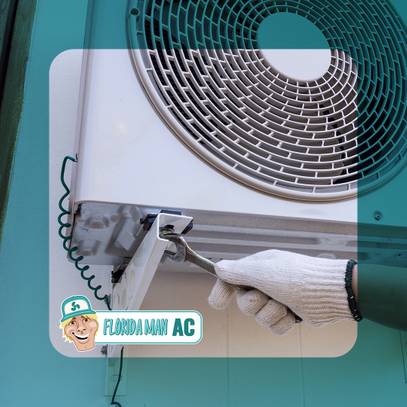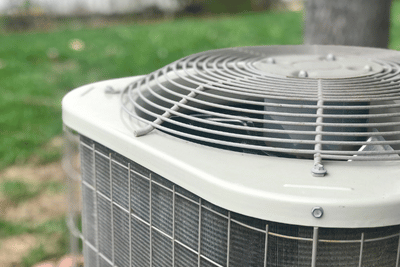When the sweltering summer heat arrives or the stifling humidity makes its presence felt, the desire for a cool and comfortable indoor space is undeniable. However, the constant hum and noise from traditional air conditioners can often disrupt the peace and quiet we crave. This leads us to the burning question: What is the quietest air conditioner, and how can we attain a tranquil indoor environment without sacrificing cooling performance?
What is the Quietest Air Conditioner?
The Importance of Quiet Air Conditioning
Before we embark on the quest for the quietest air conditioner, let's delve into why quietness matters:
Enhanced Comfort
A quiet air conditioner creates a more peaceful and comfortable living environment. It allows you to enjoy your home without the constant background noise of a loud HVAC system.
Better Sleep
Excessive noise from an air conditioner can disrupt your sleep patterns, leading to a restless night's rest. A quiet AC unit ensures a more restful sleep, which is essential for overall well-being.
Reduced Stress
Unwanted noise can elevate stress levels. A quiet air conditioner contributes to a calmer atmosphere, reducing stress and promoting relaxation.

The Factors Contributing to Air Conditioner Noise
Understanding the sources of air conditioner noise is crucial in our pursuit of quieter cooling solutions.
Compressor Noise
The compressor is the heart of an air conditioner and is responsible for most of the noise. As it cycles on and off, it can create noticeable sound levels.

Technology Behind Quieter Air Conditioners
Now, let's explore the technology and innovations that have paved the way for quieter air conditioning:
1. Variable-Speed Compressors
Traditional air conditioners use single-speed compressors that turn on and off abruptly, creating noticeable noise. Variable-speed compressors adjust their speed according to the cooling needs, operating at lower speeds when demand is lower, and resulting in quieter operation.
2. Sound Dampening Materials
Manufacturers have incorporated sound-dampening materials in the construction of air conditioners to absorb and minimize noise. These materials help reduce vibrations and compressor noise.
3. Advanced Fan Design
Innovative fan blade designs and fan motor technology have led to quieter airflow. These improvements reduce turbulence and noise associated with fan operation.
4. Isolated Compressor Mounts
Isolating the compressor with specialized mounts helps prevent vibrations from transferring to the structure of your home, reducing overall noise levels.
5. Noise-Reducing Features
Modern air conditioners often come equipped with noise-reducing features, such as quiet mode settings, low-noise fan operation, and insulated cabinets.
Fan Noise
Both the indoor and outdoor fans play a significant role in cooling. Their operation generates airflow and can contribute to overall noise.
Ductwork Noise
The ductwork in your HVAC system can transmit noise from the air conditioner to different parts of your home. Proper insulation and design are essential to minimize this effect.
Vibration Noise
Vibrations from the compressor, fan motors, and other components can transfer into the structure of your home, creating additional noise.
Airflow Noise
Air rushing through ducts, grilles, and vents can produce noise, especially if airflow is restricted or not properly designed.
Deciphering Decibel Levels
To determine how quiet an air conditioner is, we often refer to decibel (dB) levels:
60-70 dB: Standard Noise
Most traditional air conditioners operate within this range, producing a noticeable hum.
50-59 dB: Quieter Operation
Air conditioners in this range are considered quieter and are ideal for bedrooms and living spaces.
Below 50 dB: Whisper-Quiet
These air conditioners are exceptionally quiet and are often preferred for bedrooms, libraries, and areas where noise disruption is least desirable.
The Quietest Air Conditioner Options
Ductless Mini-Split Systems
Ductless mini-split systems are known for their quiet operation. They consist of an indoor unit and an outdoor unit connected by refrigerant lines, eliminating the need for noisy ductwork. These systems often operate at sound levels below 40 dB.
Inverter Technology
Air conditioners with inverter technology, especially those with variable-speed compressors, tend to be quieter than traditional models. They adjust their speed to maintain the desired temperature, reducing noise during low-demand periods.
High-Efficiency Central Air Conditioners
High-efficiency central air conditioners are designed with noise reduction in mind. They often feature advanced fan designs, insulated cabinets, and sound-dampening materials to keep noise levels low.
Quietest Air Conditioner
Noise from air conditioners can disrupt sleep, increase stress, and detract from overall well-being. However, advancements in technology, including variable-speed compressors, sound-dampening materials, and innovative fan designs, have paved the way for quieter cooling solutions.
When choosing an air conditioner, consider the decibel level and technology used to minimize noise. Ductless mini-split systems, inverter technology, and high-efficiency central air conditioners are among the options that offer quieter operation. By understanding the factors contributing to air conditioner noise and the technology behind quieter units, you can achieve the peace and quiet you desire while staying cool and comfortable during the hottest months of the year.
